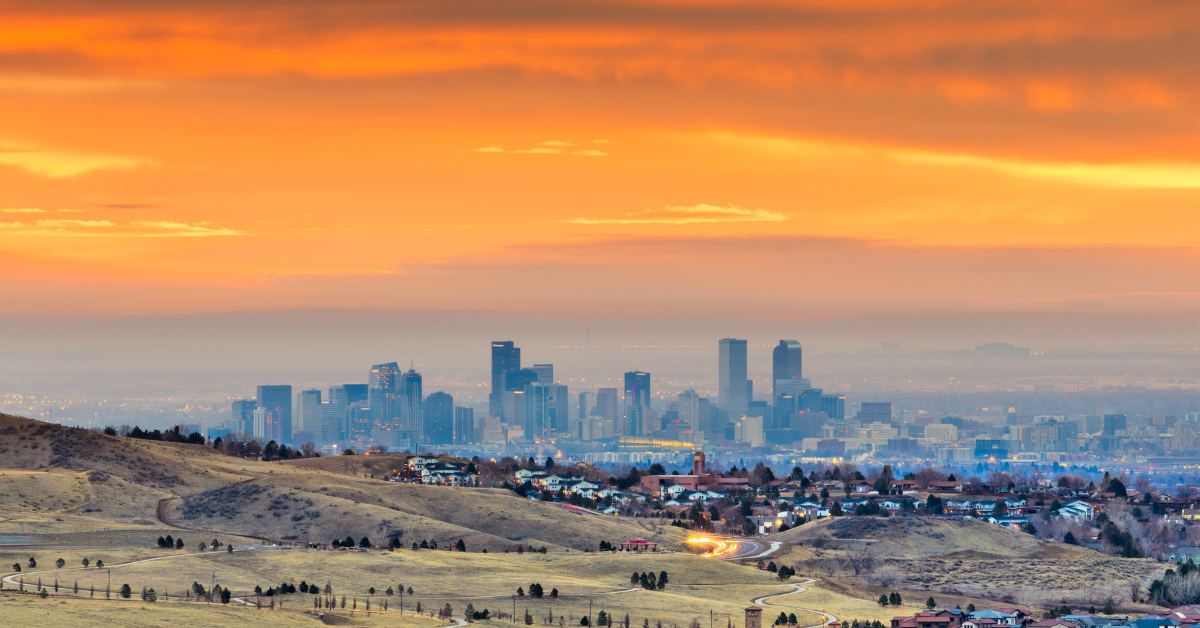Heat pumps function as two-way air conditioning units. In the summer, they work similarly to any other air conditioning unit, eliminating heat from the air that circulates inside and driving cooled air back into the space. During the colder months, they perform the reverse, taking heat energy from the outside air and directing it inside for warmth. The procedure is very efficient, utilizing half the energy of conventional electric heating systems.
Denver is hotter than the rest of Colorado on average, with 33.7 days a year when the high is above 90 degrees Fahrenheit. Denver has a yearly average of 155.1 days with lows below freezing. Given these numbers, it’s clear that a heat pump in Colorado is essential. Here are some of the factors to consider when choosing the right heat pump for your Colorado home.
The Primary Kinds of Heat Pumps
In the United States, air-to-air heat pumps are the most common kind of air-source heat pump. This implies that instead of using radiators to distribute heat, they use a forced-air system that absorbs and releases heat from the air. The two main varieties of air-to-air heat pumps found in Denver, CO, residences are as follows:
Mini-Split or Ductless Heat Pumps
Like ducted systems, they heat and cool the air in your home, but they do not require the installation of ductwork. In its place, the outside unit communicates with a series of interior air handlers, often known as “heads,” that are strategically placed around your house. It’s a typical, simple method for installing a heat pump in a house or room without ductwork. Heads for air handlers may be installed in the floor or ceiling if homeowners choose not to have them visible or don’t have enough room on the surface of the wall. Mini-splits are superior to ducted heat pumps in terms of energy efficiency since they eliminate more than 30% of energy loss from ductwork. Our trained Denver, CO, technicians specialize in installing and repairing ductless mini-split heat pumps. This is an excellent heat pump choice if you’re on a budget, as it saves you the expense of installing ducts.
Heat Pumps with Ductwork
This heat pump is very similar to a conventional window or wall air conditioner in appearance and operation. The heat is transferred from the outside unit to the interior unit through a refrigerant line filled with fluid. Both the outdoor and indoor units include aluminum fins and coils to release or absorb heat. A compressor is located in the outside unit and is responsible for the compression and circulation of the refrigerant. Your home’s ducts connect to the interior unit, and from there, the warm or cold air is blown via the ducts and out the vents.
Determining the Right Size
When compared to a properly sized unit, the monthly energy bills for a poorly sized heat pump will be higher. The inability to heat or cool your house properly is yet another negative outcome. There might be temperature and humidity disparities throughout the house. The following techniques may help you determine the ideal heat pump size for your property.
Your Property’s Square Foot Size
It might be difficult to assess the impact of each variable on your heat pump sizing since there are so many considerations. Fortunately, there is an easy method to determine the optimal heat pump size.
One ton of cooling capacity is needed for every 500 square feet of space. To help you estimate the number of tons you’ll need, consider the following:
- One ton for every 500 square feet.
- Two tons per 1,000 square feet
- Three tons per 1.500 square feet, et cetera
Note that heat pump sizing requires knowledge of the conversion factor between tons and British thermal units (BTUs). Sizes for heat pumps are usually measured in BTUs.
Manual J
When it comes to choosing the right size heat pump, many people opt for Manual J. Heat pump sizing guidelines developed by the Air Conditioning Contractors of America take into account a total of eight variables. There are eight considerations in Manual J. They are as follows:
- The Denver, CO, climate, especially the number of warm and cooling days each year
- Dimensions and floorplan of your property
- Window locations
- Temperature requirements
- Appliances that produce heat
- The number of occupants on the property
- Filtration of the air in your house
- The effectiveness of your home’s insulation
The Temperature
Choose a heat pump that is rated to perform well in the lowest temperatures that Denver, CO, experiences. As the temperature drops, the effectiveness and heating capacity of all air-source heat pumps decrease.
Heat pumps designed for use in cold climates may function at peak efficiency at temperatures as low as 5 °F and may provide some heat at temperatures as low as -20 °F. To get the greatest results, team up with one of our Denver, CO, heat pump experts who can advise you on the right heat pump for the climate.
Price and Brand Quality
The cost of installing a heat pump in Colorado might vary greatly depending on not just the kind of unit being installed but also the service provider chosen.
To choose the top heat pump brand in Colorado, you ought to look at a variety of user reviews as well. This will reveal which brands are the most trustworthy. Also, check to see if the manufacturer provides any sort of warranty.
Contact us to discuss potential heat pump installation costs with our Denver, CO, heat pump technicians. We’ll let you know if there are any discounts or sales applicable, too. On a budget? No worries, as we provide varying financing alternatives.


